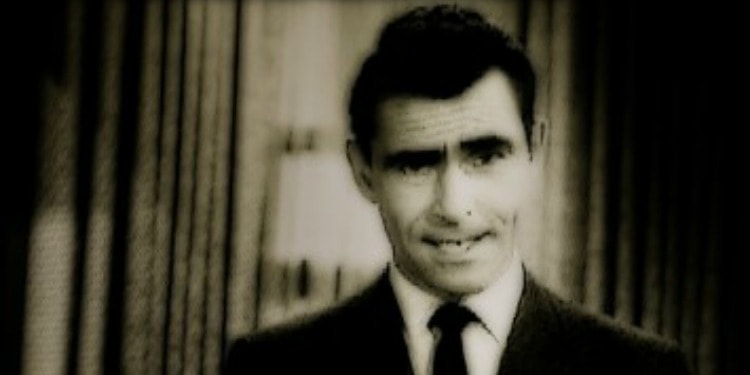We Still Live in the Twilight Zone
Stand for Israel | August 1, 2019

Many of us remember (and perhaps still watch) the classic television program, The Twilight Zone, known for its thrills and chills. But what some may not remember is how the show addressed the Holocaust, which was much more recent when the episodes were made. Writing at the Algemeiner, Mitchell Bard recalls how the show dealt with this dark chapter in history, and talks about how creator Rod Serling’s life informed what it said:
A popular show on Netflix is Black Mirror, which is often compared to The Twilight Zone, which ran from 1959 to 1964. Those of us old enough to remember the latter show, or younger people who have watched episodes on Hulu, know that Rod Serling’s writing, creativity, and ability to relate to the modern world was far superior to today’s imitation. One reason is Serling’s background, which was vastly different from today’s Hollywood showrunners.
Unlike today’s writers, whose only experience of war is mostly what they have seen in movies and on television, Serling enlisted in the US Army after he graduated from high school in 1943 and served in the 511th Parachute Infantry Regiment of the 11th Airborne Division. He hoped to go to Europe to fight the Nazis, but was assigned to the Pacific.
While serving in the Philippines, Serling experienced the death and destruction of war daily. In one freak accident, a Jewish soldier was performing a comedy routine when a food crate dropped from a plane, which decapitated him. Serling led the funeral services and placed a Star of David over his grave.
His platoon suffered a high casualty rate in battles to take control of Japanese strongholds, and Serling was wounded. He was awarded the Purple Heart, the Bronze Star, and the Philippine Liberation Medal.
Serling’s combat experience naturally influenced his writing, and he became a passionate opponent of war, bigotry, and fascism…
The concluding narration by Serling is both unusual and poignant. In all but a few episodes, he ends his remarks by saying something about the Twilight Zone. What he says this time, however, should resonate with audiences today, not just in the United States but around the world…
